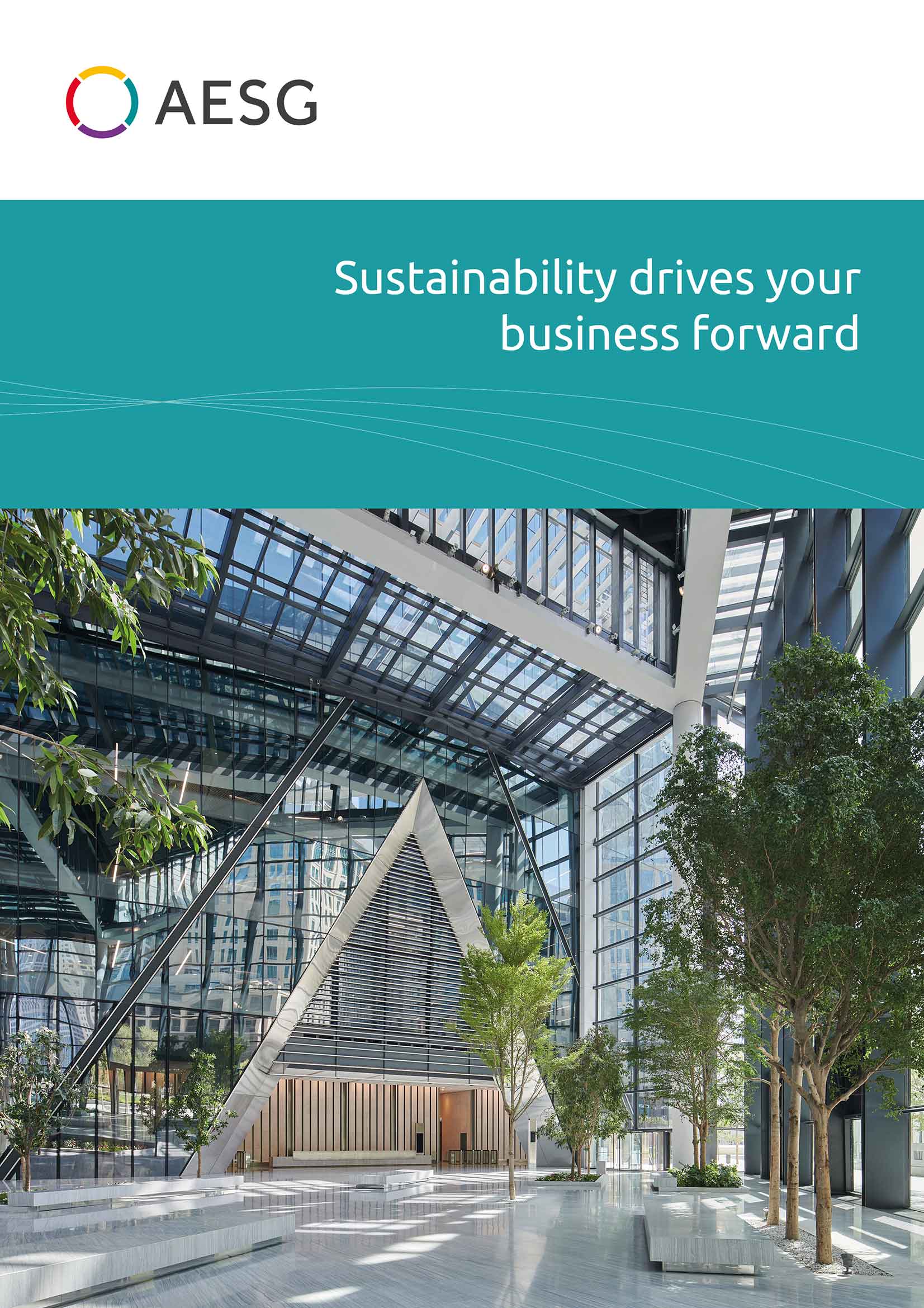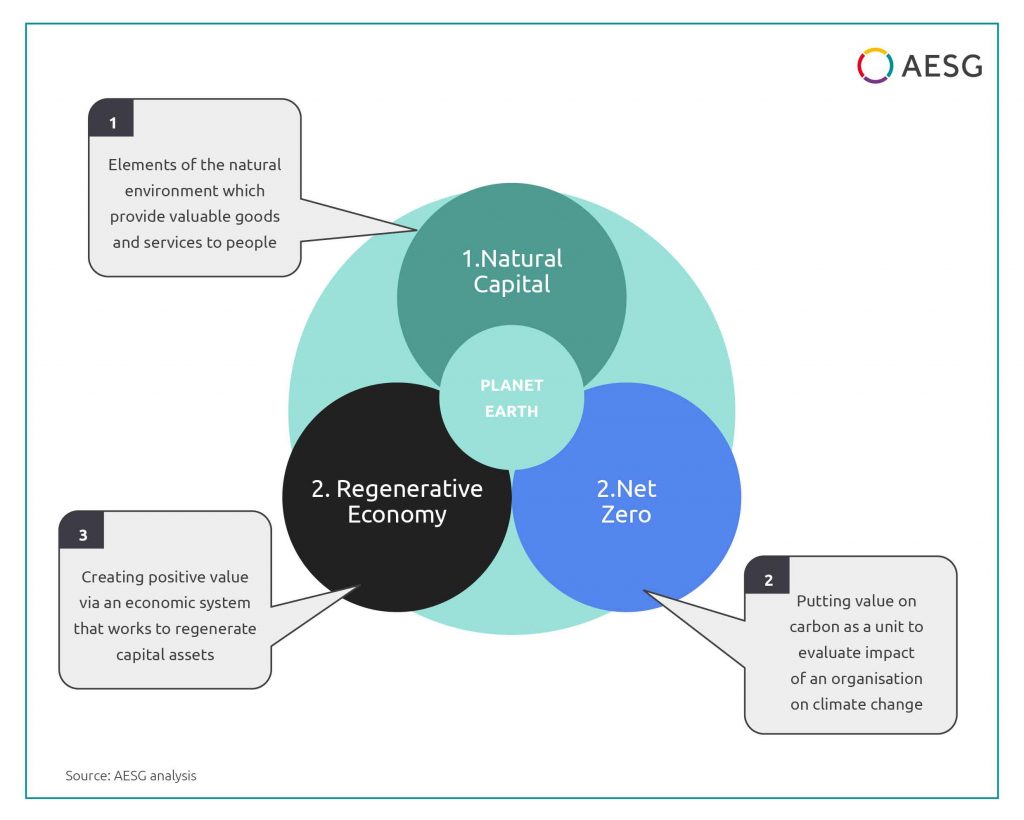
Sustainability will drive your business forward. This is where you start.
COP27 is over. Sustainability has been everywhere for the past few months (or years, depending where your business operates).
You have a number of challenges to address: Inflation, choked supply chains and mismatch in supply and demand of resources are hitting your bottom line.
Still, I want to give you a few reasons why sustainability is relevant for a business in times of crisis and what you can do to jumpstart integration of sustainability in your day to day operations.
I have included links in the text for those who want to read into the specific examples.
Let’s start with drivers of sustainability that are anchored in the situation of UAE and Saudi Arabia:
1. Sustainability is firmly on the strategic agenda of the governments in the region. This translates into both energy and non-energy sectors of the economy. We see development of renewable energy and investment into more efficient, digitally enabled oil & gas value chains. We witness the design and construction of new cities and communities in the UAE and Saudi Arabia based on sustainability principles of better management of energy, water and environmental resources. The shift is real.
2. Sustainability is demanded by customers and investors alike. A number of sectors are integrating sustainability via client pressure: Tourism, manufacturing and even utilities need to provide sustainable alternatives or an enhanced version of their current product based on sustainability criteria. There is now a growing volume of funds which base their investment thesis on sustainability-related metrics. Moreover, sustainability-based financing is starting to offer lower cost or capital. Businesses are taking notice.
3. Sustainability can support an internal business transformation agenda by creating resilience, lowering operational costs and creating value via new product and solution lines. In a rapidly changing economic environment, integrating sustainability in a business can drive new opportunities. The reason for such a potent impact is that sustainability can generate a thorough analysis and restructuring of business operations, when done properly.
So do read on to start with a few specific actions. You have probably read and heard a lot about sustainability. You have heard about reporting on sustainability indicators or KPIs, you have heard about investing with a sustainability lense.
This article is about integrating sustainability in your business, making it integral to your operations.
What does it mean to integrate sustainability in your business?
1. Sustainability or sustainable development « meets the needs of the present without compromising the ability of future generations to meet their own needs «. This is the official definition based on The World Commission on Environment and Development and its Our Common Future Statement from 1987. It is used by the Global Reporting Initiative, the golden standard for sustainability reporting.
To streamline the complexity of sustainability topics, we have developed an overarching framework which takes the focus of corporate efforts towards planet health. The term is based on “planetary health” concept which was launched by the Rockefeller Foundation and The Lancet in 2015. Planet health refers to “the health of human civilization and the state of the natural systems on which it depends”. It translated into 3 different work streams within your organisation:
2. Still, sustainability is complex and covers topics ranging from environment, through social and worker welfare policies to risk management. The United Nations distilled the sustainability agenda into 17 goals that you may use to direct your reflection on what is relevant for your business. That’s why organisations must start with a sustainability materiality assessment that prioritises topics that have relevance to your operations and stakeholders involved.
How much effort and time do you need to dedicate to this exercise?
It won’t be perfect at the beginning so do start in whichever way is possible and your materiality understanding will improve with months and years of implementation.
3. How do you actually move from understanding what is relevant to doing something?
Once you have a list of sustainability topics that are relevant for your business, you will be able to embark on two separate and interconnected journeys:
Your ability to deliver on a sustainability ambition will be tied to your capability to introduce step by step and sometimes radical change to how you think and conduct your business. Building alliances, getting buy-in from your decision makers, middle managers and stakeholders will be critical.
You will also need to put in place a system of enablers within your organisation via your core processes, such as procurement, data management, policies in the areas of environment, human resources, risk management and others.
Let’s look into each in the upcoming articles. Stay tuned!
Creating your sustainability strategy and roadmap – what do you need?
Integrating sustainability in your business – how do you do it?
Corporate sustainability maximises planet health via structured implementation of natural capital, net zero and regenerative economy agenda.

How can AESG help?
AESG is a specialist consultancy, engineering and advisory firm with offices in London, Dubai. Riyadh and Singapore working on projects throughout Europe, Asia and Middle East. We pride ourselves as industry leaders in each of the services that we offer. We have one of the largest dedicated teams with decades of cumulative experience in sustainable design, fire and life safety, façade engineering, building commissioning and digital asset management, waste management, environmental consultancy, strategy and advisory, acoustics, cost management and carbon management.

Partner and Global Director of Strategy and Advisory, AESG
Katarina Uherova Hasbani is AESG’s Partner and Global Director of our Strategy and Advisory division.
Katarina is an energy transition and sustainability professional with comprehensive experience in leadership positions across the value chain of the energy industry, encompassing utilities, oil and gas and renewables and large energy users. She has proven experience as an effective leader of global cross-functional teams and has spent 18 years designing strategies, public policies and implementing transformation projects across more than 30 countries in the Middle East, South-East Asia and Europe. Katarina covered cross-cutting themes shaping energy transition, including net zero, climate change, environmental protection, and sustainability.
She is an active public speaker and has authored a variety of studies on energy transition and decarbonisation. She is active in industry associations and is also currently a member of the Global Executive Committee for Insead Energy Alumni Club and local UAE Insead Alumni Association. Katarina mentors actively to promote balanced leadership among her industry peers and young professionals.
For further information relating to specialist consultancy engineering services, feel free to contact us